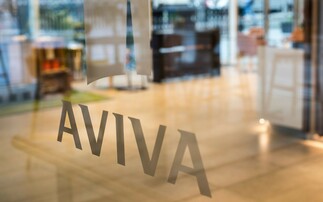With swathes of the world’s population on lockdown and economic activity on hold, Fidelity investment director Matthew Jennings assesses the likely damage to dividend payments over the coming months and outlines why selectively forsaking dividend growth could still deliver a superior long-term outcome for investors.
As at the end of March, it is estimated that around one-quarter of the global population is under some kind of coronavirus lockdown. The associated sudden drop in economic activity means many companies will not have incoming cashflows available to distribute onwards to investors. Share buybacks will be cancelled first, but we can also expect dividend cuts across the market and some in parts of our portfolios. It is too soon to quantify the magnitude - not least because the duration of the lockdown and the associated economic decline is currently unknown.
During the financial crisis, dividends were cut by around 20%, albeit with variation by region and sector, and over a longer time. Of course, the important difference today is that the recession is being caused by a policy response to a global pandemic, rather than years of financial excess and risk-taking in the banking sector. This could mean that many companies will be able to resume dividend payments once the lockdown ends and economic activity resumes, though there is currently a great deal of uncertainty around when this will happen.
A key part of our task over the coming weeks and months will be to determine which businesses have suffered an impairment of long-term franchise value, and which will come through the crisis intact (and in some cases stronger than ever). As ever, this will be done on a bottom-up basis, with specialist insight from Fidelity's global research team.
Good companies will cut dividends
There are a wide range of factors which could lead a company to cut its dividend in 2020 - many of which are highly specific to the current situation. In this environment, a dividend cut or cancellation is not necessarily a sign of a poorly managed or structurally challenged business.
In many cases, it will be the right thing to do for the long-term strength of the business and it will provide a more stable footing to deliver sustainable dividend growth beyond the current crisis.
- Even well managed, conservatively capitalised industry leaders may postpone their dividend decisions, as we have seen with Spanish retail group Inditex. Some traditionally defensive sectors may have a proportion of discretionary revenues, such as healthcare companies with exposure to elective treatments. As such, we should avoid over-generalising on safe and unsafe sectors.
- Companies with high operating leverage (ratio of fixed to variable costs) will be vulnerable to even small declines in revenues.
- Financial leverage and liquidity have also come sharply into focus. Shareholders should always remember that bondholders are paid first. If there is no cash left over after debt servicing payments, then dividends will be cut. While traditional debt ratios can help to assess, even if a company has a relatively modest debt/equity position, if its debt needs refinancing this year it may struggle.
- In addition, banking covenants will restrict dividend payments if a company's earnings are negative. Even if covenants are waived, the debt holders will want to see evidence that the company is using all levers it can to preserve cash. Deferral or suspension of dividends will be high on the list.
- Companies with high payout ratios will also be at higher risk of cuts as even a small fall in profits will mean the dividend payout becomes quickly uncovered. Companies with lower payout ratios - such as many in the US and Japan where payout ratios are typically lower - should be at lower risk of cuts. For example, US chipmaker Intel has cancelled its share buyback program but will pay a full dividend.
- Governments, regulators and shareholders may prefer that dividends in some sectors are deferred during the crisis, in order to build up an extra capital buffer and layer of resilience during a time when losses will undoubtedly increase.
Pragmatism and long-term thinking
A dividend cut in normal circumstances can be a signal of a business which has been poorly managed or is in structural decline. However, this is not necessarily the case today. We have no automatic ‘knee-jerk' reaction to a dividend cut in our portfolios. In many cases a dividend cut today will be in the long-term interests of shareholders and aid a speedy recovery on the other side of the pandemic.
As such, we could own some companies which will not pay a dividend in the current year if we believe long-term franchise value is preserved and that dividends will be resumed once the pandemic has passed. We feel that at this time, taking a pragmatic view based on expectations for a long-term total return rather than chasing income growth in the current year is the right thing to do for our clients.
Find out about the Fidelity Global Dividend Fund
This information is for investment professionals only and should not be relied upon by private investors. The value of investments and any income from them can go down as well as up so the client may get back less than they invest. Investors should note that the views expressed may no longer be current and may have already been acted upon. Reference in this document to specific securities should not be interpreted as a recommendation to buy or sell these securities, but is included for the purposes of illustration only. Past performance is not a reliable indicator of future returns. Changes in currency exchange rates may affect the value of an investment in overseas markets. This fund invests in emerging markets which can be more volatile than other more developed markets. The Fidelity Global Dividend Fund can use financial derivative instruments for investment purposes, which may expose the fund to a higher degree of risk and can cause investments to experience larger than average price fluctuations. Investors should note that the views expressed may no longer be current and may have already been acted upon. Investments should be made on the basis of the current prospectus, which is available along with the Key Investor Information Document and current and semi-annual reports, free of charge on request, by calling 0800 368 1732. Issued by Financial Administration Services Limited and FIL Pensions Management, authorised and regulated by the Financial Conduct Authority. Fidelity, Fidelity International, the Fidelity International logo and F symbol are trademarks of FIL Limited. UKM0320/30058/SSO/NA













